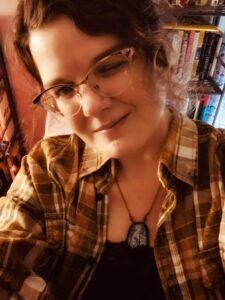“In some contrast, the former is a largely heterogeneous, socio-rhetorical assemblage of people who broadly share occupational or recreational experiences, goals, and interests. Thus, members of a DC may have different first languages, different religions, and belong to diverse ethnicities. Examples might include members of GERAS or of TESOL, all those who work in an animal clinic, or those who are members of a local choir.”
This quote is compelling because it includes specific details on what a discourse community is made of. When I think of what a discourse community is, I believe it’s all about diversity. As stated in the quote above, members of DC come from different backgrounds, speak other languages, and have different religions. It seems like just anyone can be a part of a particular discourse community, and that’s what I really like about them. I find that this quote isn’t confusing because it gives an accurate description of what a discourse community is and what it consists of.
“As we move from one DC to another, our verbal and social behavior adapts to the new environment, but I do not believe that this necessarily implies that we adopt new identities, or that we are somehow merely an aggregation of different personae.”
I find this quote interesting because when people are a part of discourse communities, it doesn’t mean they have a new identity; it means they are exploring their interests and hobbies. This quote makes me feel comfortable exploring my interests to join a discourse community because I won’t feel the pressure to become a task, and it’ll remain a hobby and something I enjoy being a part of. I also feel like there’s no pressure from growing out of particular interests or hobbies and will feel welcome to join discourse communities to whatever draws my attention. Being a part of a discourse community gives you the freedom of any fascinating hobby you’d like to invest more time into.





Leave a Reply